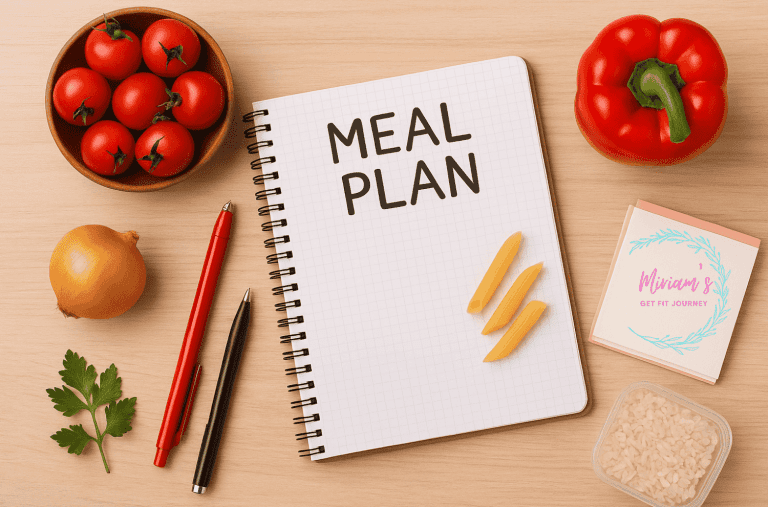MASTERING MEAL PLANNING MADE SIMPLE by Miriam Rees
Have you ever tried meal planning and felt discouraged when it didn’t seem to work? You’re not alone! Meal planning can either simplify your life or make it feel more complicated—it all depends on how you approach it.
With the right mindset, tools, and consistency, you can become a pro at meal planning, whether you’re cooking for yourself, your partner, or your whole family. Here’s how to make it easy, enjoyable, and sustainable.
WHY MEAL PLANNING MATTERS
Meal planning saves time, money, and stress. It helps you stay on track with your nutrition goals, reduces food waste, and eliminates the daily question: “What’s for dinner?” Once you have a system that works for you, it can completely transform your week.
WHAT YOU’LL NEED TO GET STARTED
Before you begin, gather a few key tools to make the process smooth and organized:
- A recipe box or binder to store your favorite meals
- A few pens or markers (multi-colored ones make it fun)
- A calendar or planner to schedule your meals
- A food journal to track what you eat and how it makes you feel
- A notebook for grocery lists or meal ideas
10 SIMPLE STEPS TO BECOME A MEAL PLANNING PRO
- Spend time each week finding recipes that you and your family will enjoy.
- Save your recipes in a box, binder, or digital folder for easy access.
- Check the weather — plan meals that fit the mood! (Think soup on rainy nights or grilling when it’s sunny.)
- Use themed nights to keep it fun — taco night, pasta night, soup night, etc.
- Plan for leftovers to save time and money.
- Create a shopping list and stick to it when you go to the store.
- Pick a specific day for grocery shopping and food prepping — consistency is key.
- Take advantage of grocery store sales to stay budget-friendly.
- Prep your food immediately after shopping. Wash, chop, and store — or even cook and freeze meals in advance.
- Keep your fridge organized and your pantry stocked for stress-free weeks.
Pro tip: Keep a meal binder or food journal with weekly menus. This helps when you need ideas or want to repeat your favorites!
HOW MEAL PLANNING CHANGED MY ROUTINE
Following these steps has made meal planning fun and efficient for me. I no longer dread dinnertime or scramble for last-minute ideas. I already know what’s on the menu, and most of the prep work is done ahead of time.
This simple system also gives me time for my workouts after work — without the stress of rushing to cook dinner.
🕒 Want to learn more about the best time to work out?
Click here to read my blog on finding your perfect workout time!
FINAL THOUGHTS
Meal planning and prepping is a journey, not a chore. Once you get the hang of it, it becomes a routine that saves you time, money, and stress. Stick with it, stay positive, and enjoy the benefits of a smoother, healthier lifestyle.





